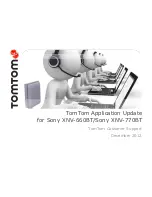
Appendix B.
Troubleshooting Your Installation of Red Hat
Enterprise Linux
This appendix discusses some common installation problems and their solutions.
B.1. You are Unable to Boot Red Hat Enterprise Linux
B.1.1. Is Your System Displaying Signal 11 Errors?
A signal 11 error, commonly know as a
segmentation fault
, means that the program accessed a memory
location that was not assigned.
If you receive a fatal signal 11 error during your installation, it is probably due to a hardware error in
memory on your system’s bus. A hardware error in memory can be caused by problems in executables
or with the system’s hardware. On pSeries systems, running the hardware diagnostics that were sup-
plied with your system should help pinpoint any hardware problems (such as CPU cache or memory
errors).
Review if you have the latest installation and supplemental boot diskettes from Red Hat. Review the
online errata to check if newer versions are available. If the latest images still fail, it may be due to a
problem with your hardware. Commonly, these errors are in your memory or CPU-cache. A possible
solution for this error is turning off the CPU-cache in the firmware. You could also try to swap your
memory around in the motherboard slots to check if the problem is either slot or memory related.
You can also try running the installation with only 256 MB of memory. This can be done by booting
the installation program with the
mem=256M
boot option. To try this option, at the installation boot
prompt, type:
mem=
xxx
M
where
xxx
should be replaced with the amount of memory in megabytes.
Note, iSeries system users must remember to add boot options, as are listed in this manual for other
operating systems, by first logging into the hosting OS/400 partition as an iSeries user and then setting
any IPL Parameters within the NWSD for their partition.
Another option is to perform a media check on your installation CD-ROMs. To test the checksum
integrity of an ISO image, at the installation boot prompt, type:
linux mediacheck
This command works with the CD, DVD, hard drive ISO, and NFS ISO installation methods.
Note, iSeries system users must remember to add boot options, as are listed in this manual for other
operating systems, by first logging into the hosting OS/400 partition as an iSeries user and then setting
any IPL Parameters within the NWSD for their partition.
For more information concerning signal 11 errors, refer to:
http://www.bitwizard.nl/sig11/
Содержание ENTERPRISE LINUX 3 - FOR IBM ESERVER ISERIES AND IBM ESERVER PSERIES
Страница 14: ...6 Chapter 1 Steps to Get You Started ...
Страница 52: ...44 Chapter 2 Installing Red Hat Enterprise Linux ...
Страница 54: ...46 Appendix A Red Hat Linux to Red Hat Enterprise Linux Migration Solution ...
Страница 74: ...66 Appendix E Additional Boot Options ...
Страница 78: ......
Страница 80: ...72 ...
















































